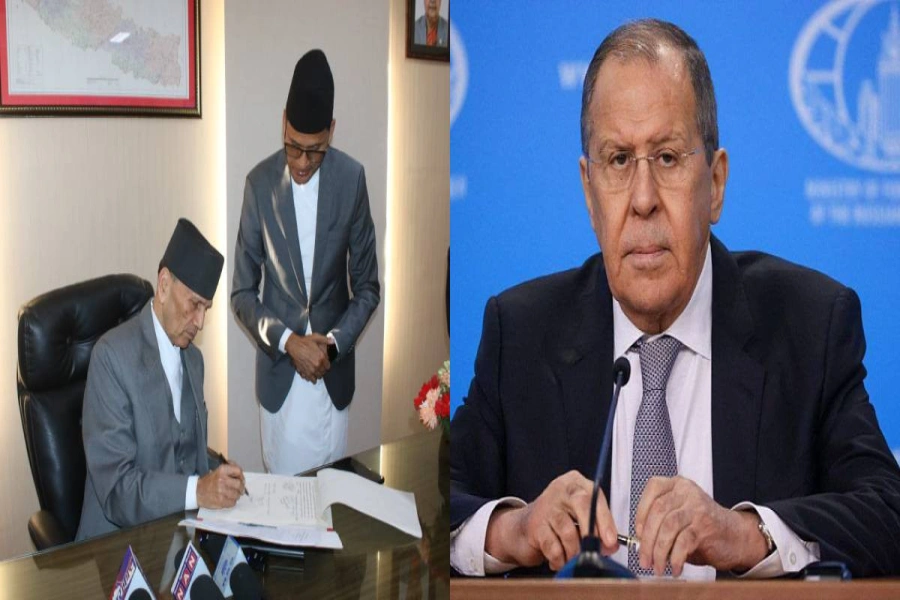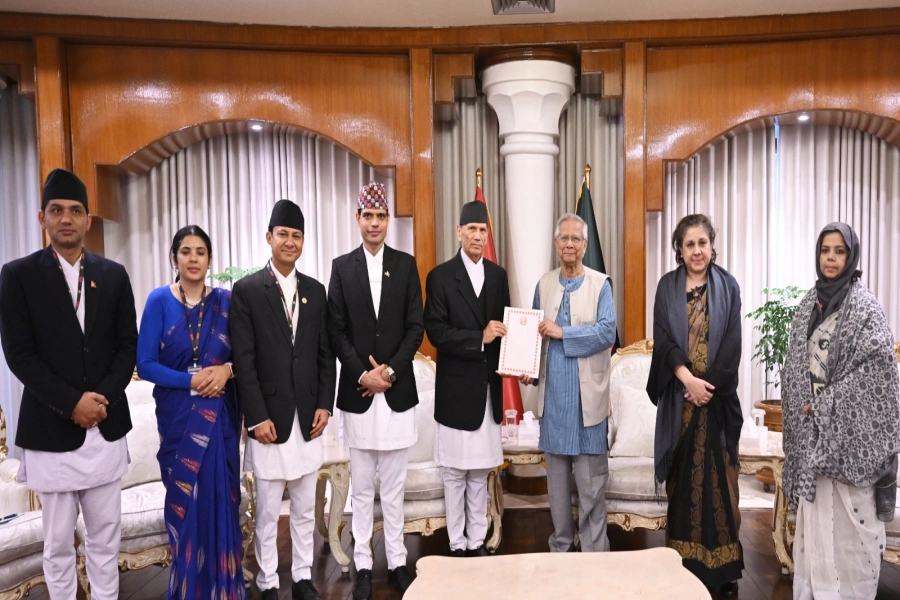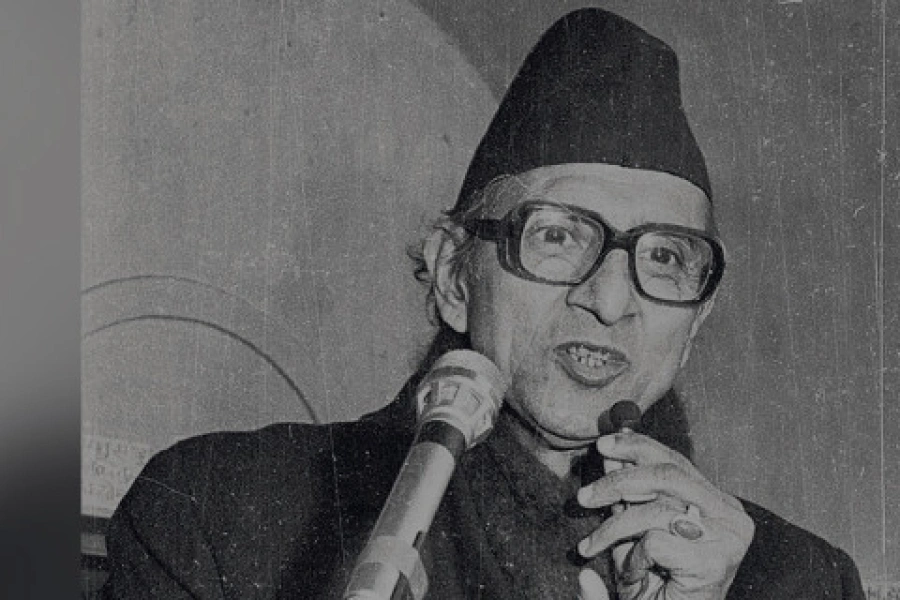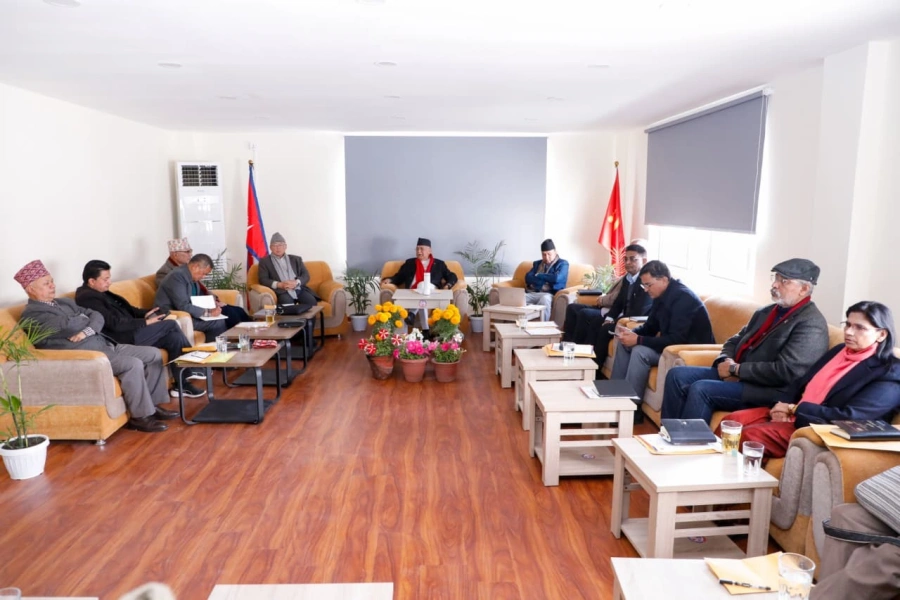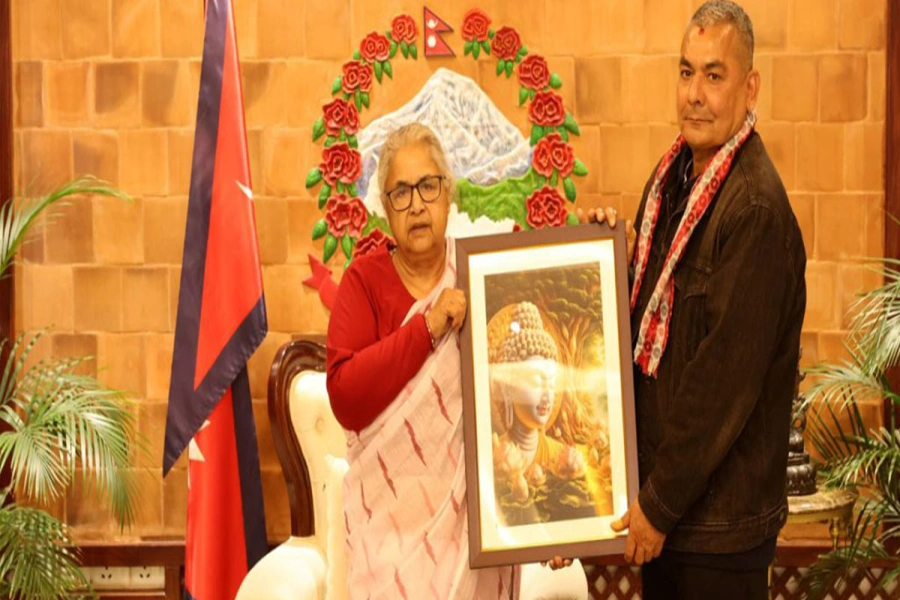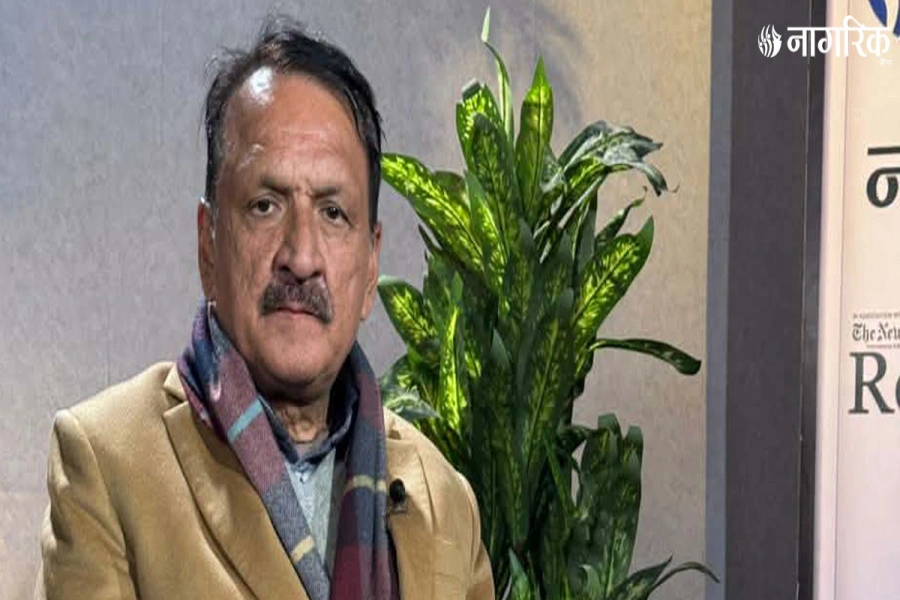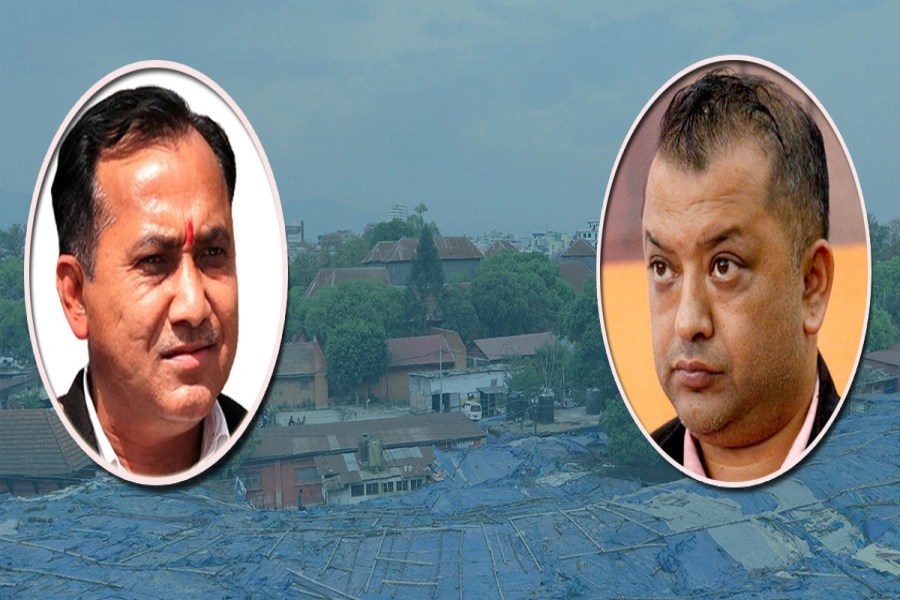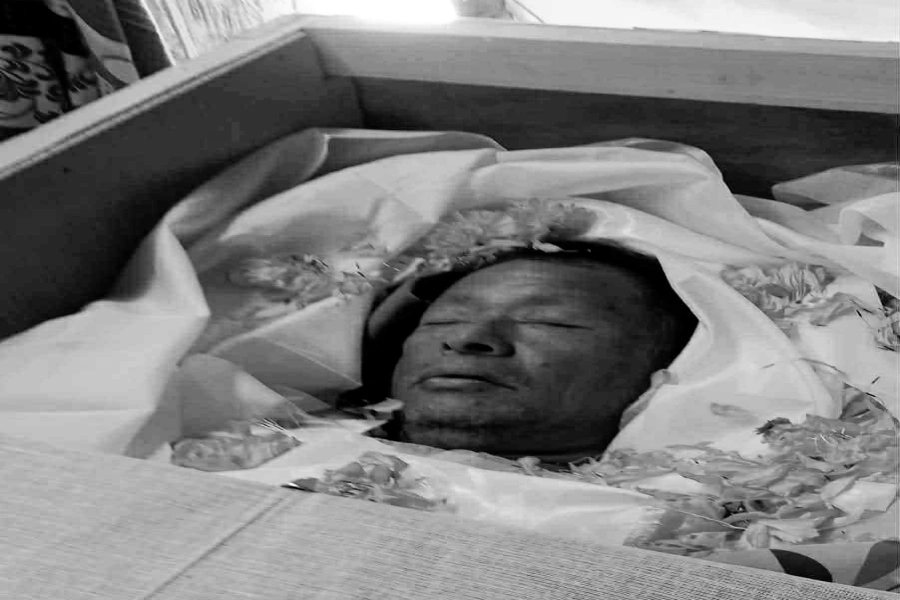When the Left is in power, hardly anything seems to go right for the people. As of now, the voices doubting the current caretaker government’s intentions in Nepal are growing each day. The political and civil circles of Nepal seem to genuinely fear the rise of a domestic ‘big brother’¬¬¬––Prime Minister Baburam Bhattarai and his UCPN (Maoist)––given its actions and recent impulsive decisions. While the rise of the big brother is obvious, one needs to decipher the source of power of this upcoming big brother by analyzing recent political developments.
UCPN (Maoist) has led the government for just a little more than a year now, but this time has left an indelible mark on Nepal’s history. Some seemingly simple, yet crucial, things have happened during Bhattarai’s tenure. The dissolution of the Constituent Assembly, the killing of Supreme Court justice Rana Bahadur Bam and the widening of roads in the capital might seem to have no connection, but these actions do carry undertones of the message of the upcoming big brother.[break]
The first two events scarred our legislative and judiciary arenas. The CA’s dissolution was UCPN (Maoist)’s unilateral decision. The second instance, in which Supreme Court Justice Bam was shot dead in broad day light, clearly sent out the message that being involved in a controversy could risk your life. The third instance is where the Bhattarai government demolished, amidst protests and hurt sentiments, the so-called illegal huts and houses next to public roads. Now, the roads in the capital are much wider, albeit with plenty of manholes to fall into. There is no sign of construction any time soon.
With this drive, the government demonstrated it can take away our livelihood anytime. The fear of similar demolition is sending chills down the spines of many across the country. This drive has proved the inviolable supremacy of the state over the public.
These three events as a whole sent out a clear message. It proved that this government is different from the previous ones. But, even as PM Bhattarai is making an attempt to become the ‘big brother’ at home, there is another such attempt being made to dominate Nepal elsewhere. Now, Uncle Sam seems willing to nurture the possibility of becoming an external ‘big brother’ to Nepal.
Recently, the US seems to be at ease with UCPN (Maoist). It has not only removed the ‘terrorist’ tag from the party but also extolled the party’s contribution to peaceful transition in Nepal. Off the terrorist list, the UCPN (Maoist) has gained an image of a legitimate political party and moved closer to the US. In a way, there is a fair possibility that the muscular superpower and our would-be big brother might be cuddling up in the near future. While the fear of totalitarianism is growing in Nepal, it cannot be a mere coincidence that the US took the Maoists off the terrorist list. America clearly seems to have found a perfect match in our PM and his party.
Not only this, now the US has a larger motive here than ever before. It sees Nepal as a country from where it can profitably extract oil resources. A US government-sponsored conference, ‘Energy South Asia’, held in Kathmandu in March 2000 fed American companies with the details on planned projects worth billions of dollars in the areas of oil and gas, refinery and petrochemicals.
BBB Champions Oil Company—yet another oil exploration company in America—is all set to explore possible oil mines in Nepal. It is scheduled to explore block 10 which lies in Biratnagar, our eastern border with our southern neighbor. It is crucial for us to take into account that the US in recent times has sneaked into a country primarily through trade or engaged in war with countries largely for their natural resources and geopolitical significance. And Nepal fits into both categories. Block 10 is in a geo-politically strategic position with resources that America wants. This gives US an ideal context to enter Nepal. BBB Champions is just another bridge for the US to connect itself with both the Nepali state and people. It is also possible that even if there isn’t any profitable oil extraction, the US is here to stave off its potential rivals in Nepal.
MAOIST TOTALITARIANISM

Besides, our immediate neighbors also seem to be behaving differently from the past. Our northern neighbor in recent times has shown greater interest in Nepal. As a sign, eleven years after the then Chinese premier Zhu Ronji visited Nepal, Chinese premier Wen Jiabao came calling and signed eight agreements in January. More recently, a deputy minister from China underlined the need for enhanced exchange of high-level visits and increased physical connectivity.
Our southern neighbor, on the other hand, seems to be maintaining uncharacteristic silence. Although India is obviously not vocal about growing external engagement in Nepal, there is certainly an undercurrent of worry in New Delhi. However, as long as New Delhi gets its due and Kathmandu does not act contrary to India’s interest, it is likely to remain silent, especially now when India itself is dealing with a multitude of political, social and economic upheavals. India’s relative silence seems to have given our PM more leeway to conduct his business without much hindrance, unlike earlier times.
To conclude, with rising Machiavellian politics, totalitarianism is in sight. While it is too early to claim UCPN (Maoist) is headed towards totalitarianism, it is pertinent to look at unfolding political events through skeptical lens. No matter what the issue is, our government’s decisions and engagements should be thoroughly scrutinized because we are going through a crucial transitional period. Sensitive political developments should be viewed from a critical lens and be brought into public discourse. Being apathetic to political developments during this vulnerable period could be suicidal for us, because even seemingly insignificant events can lead us to the wrong destination.
The author is doing his MA in political science from Jawaharlal Nehru University
How children become bullies




